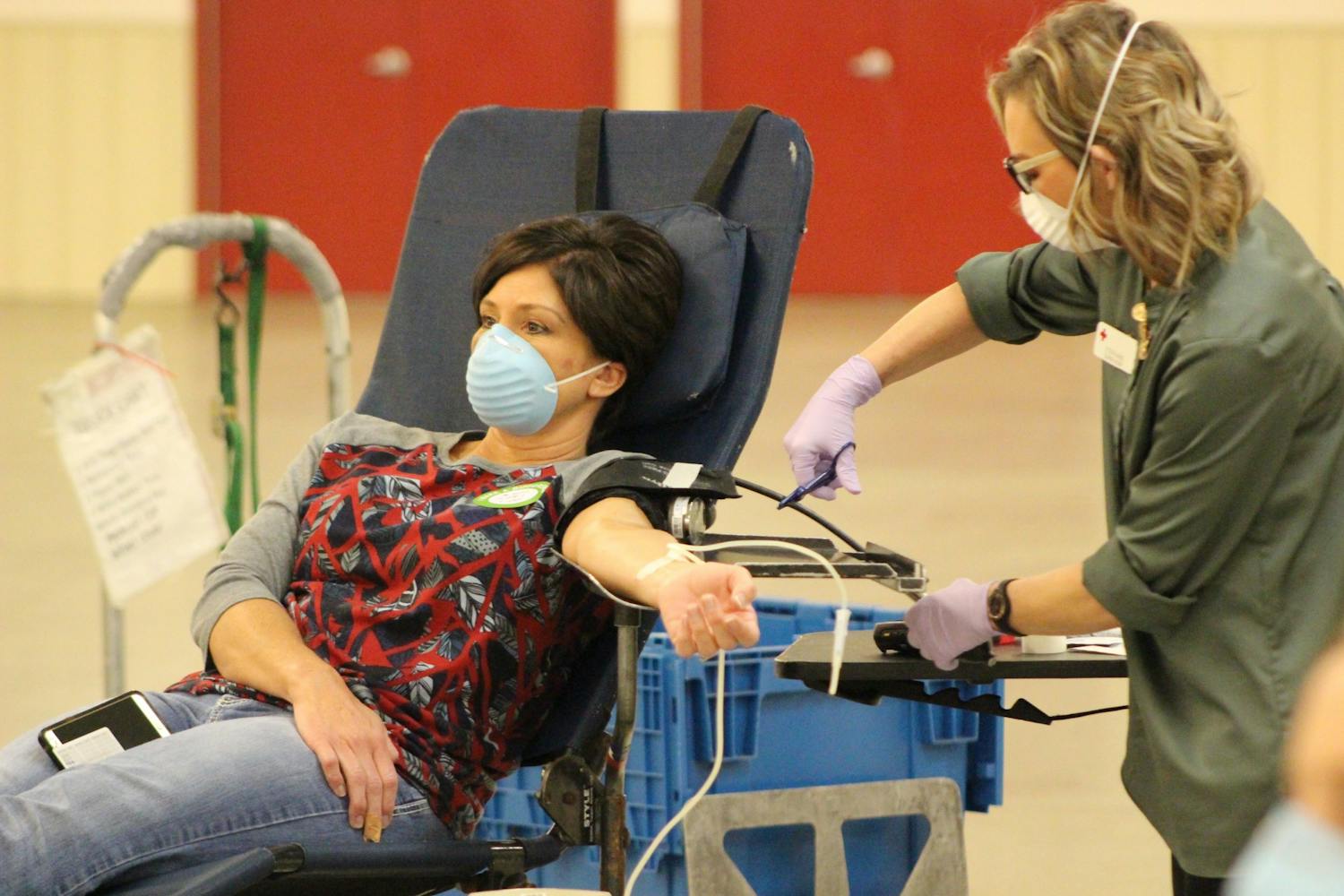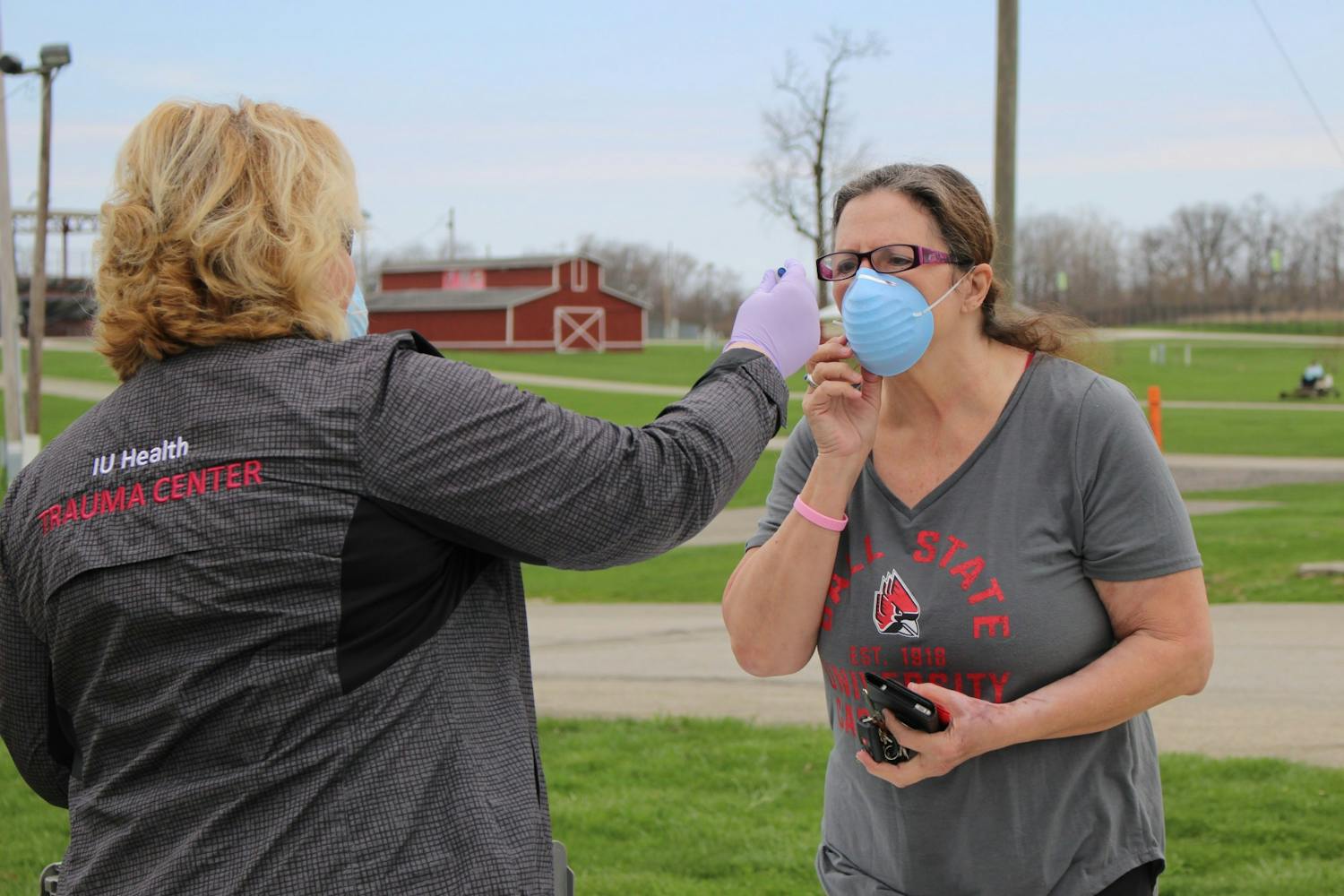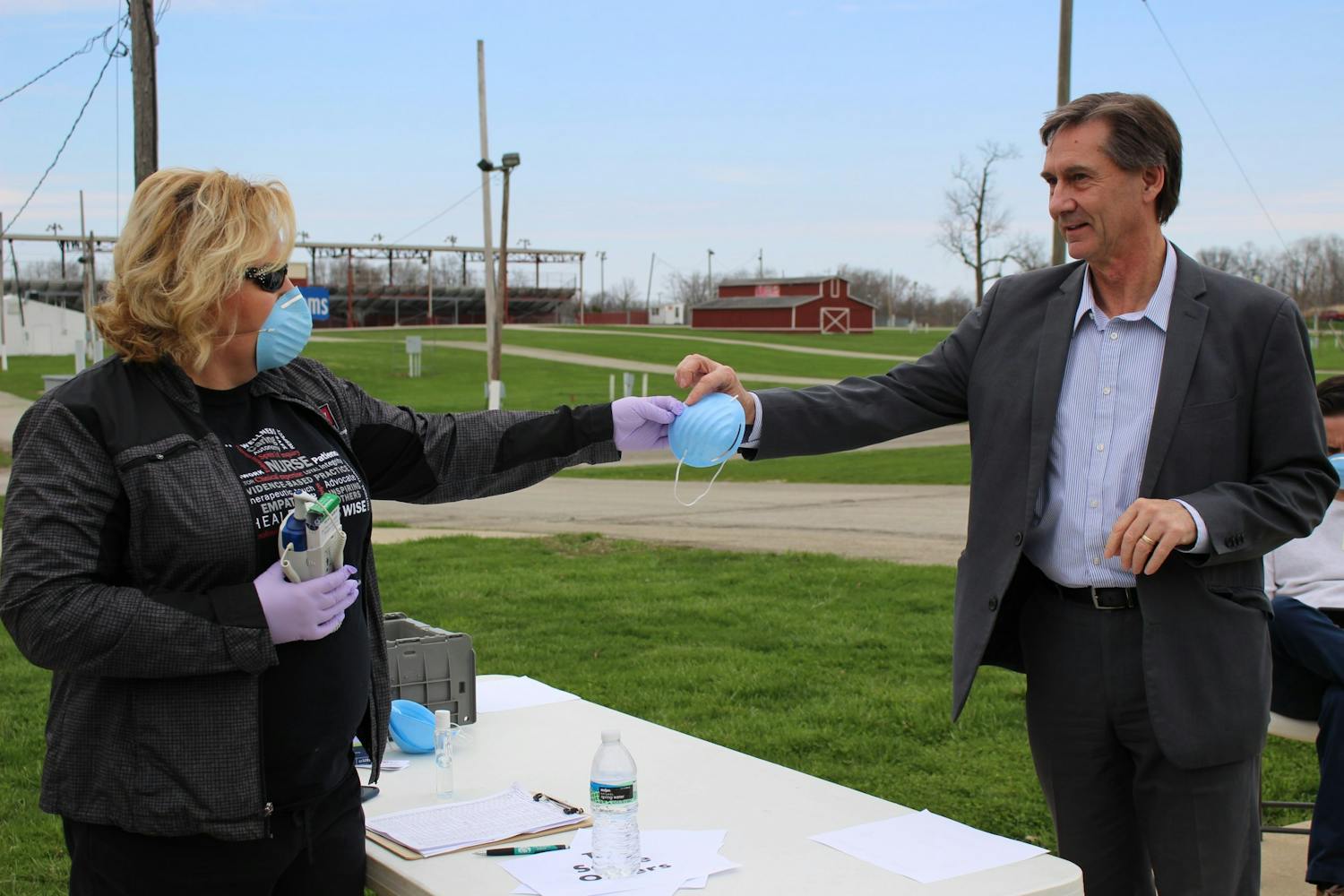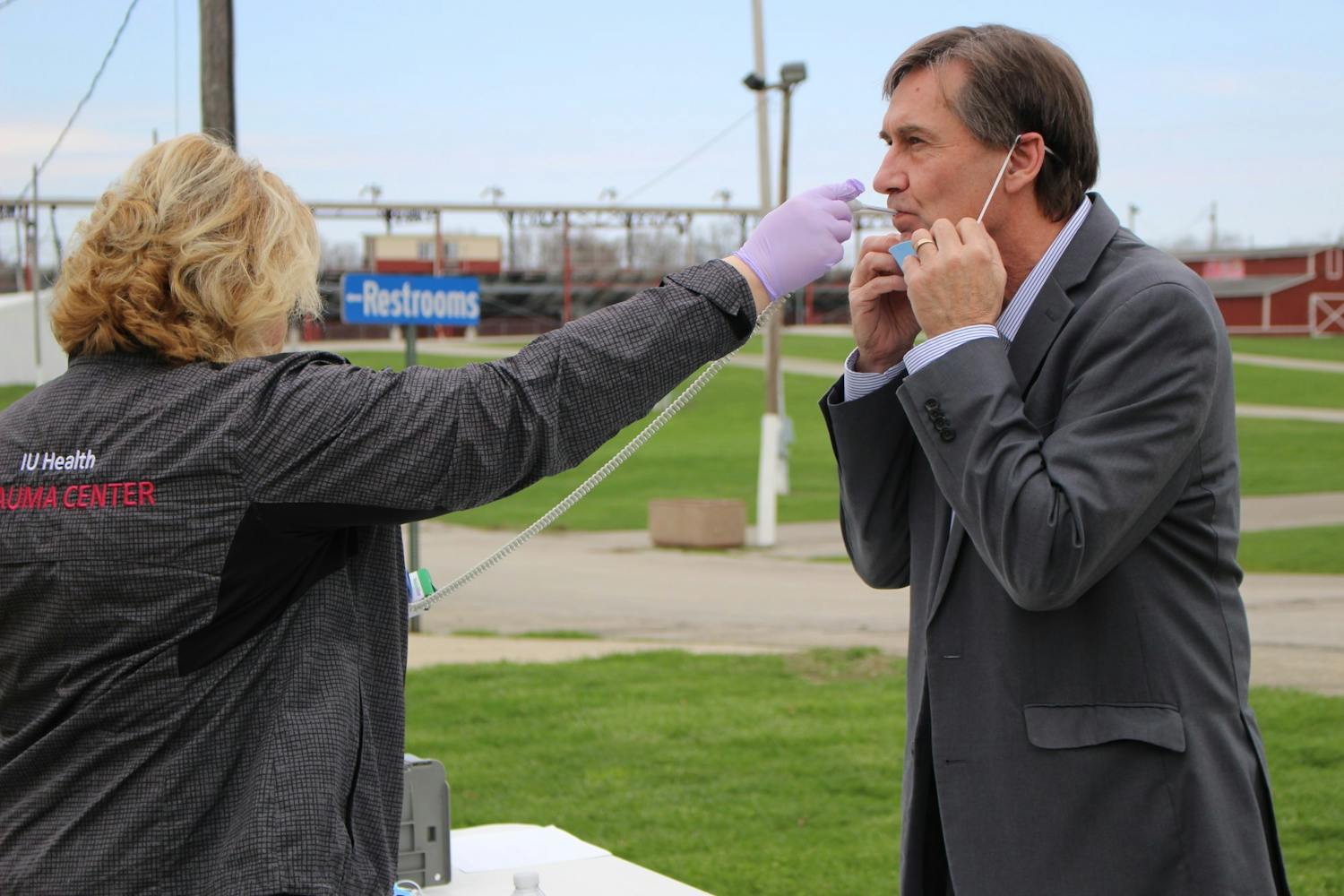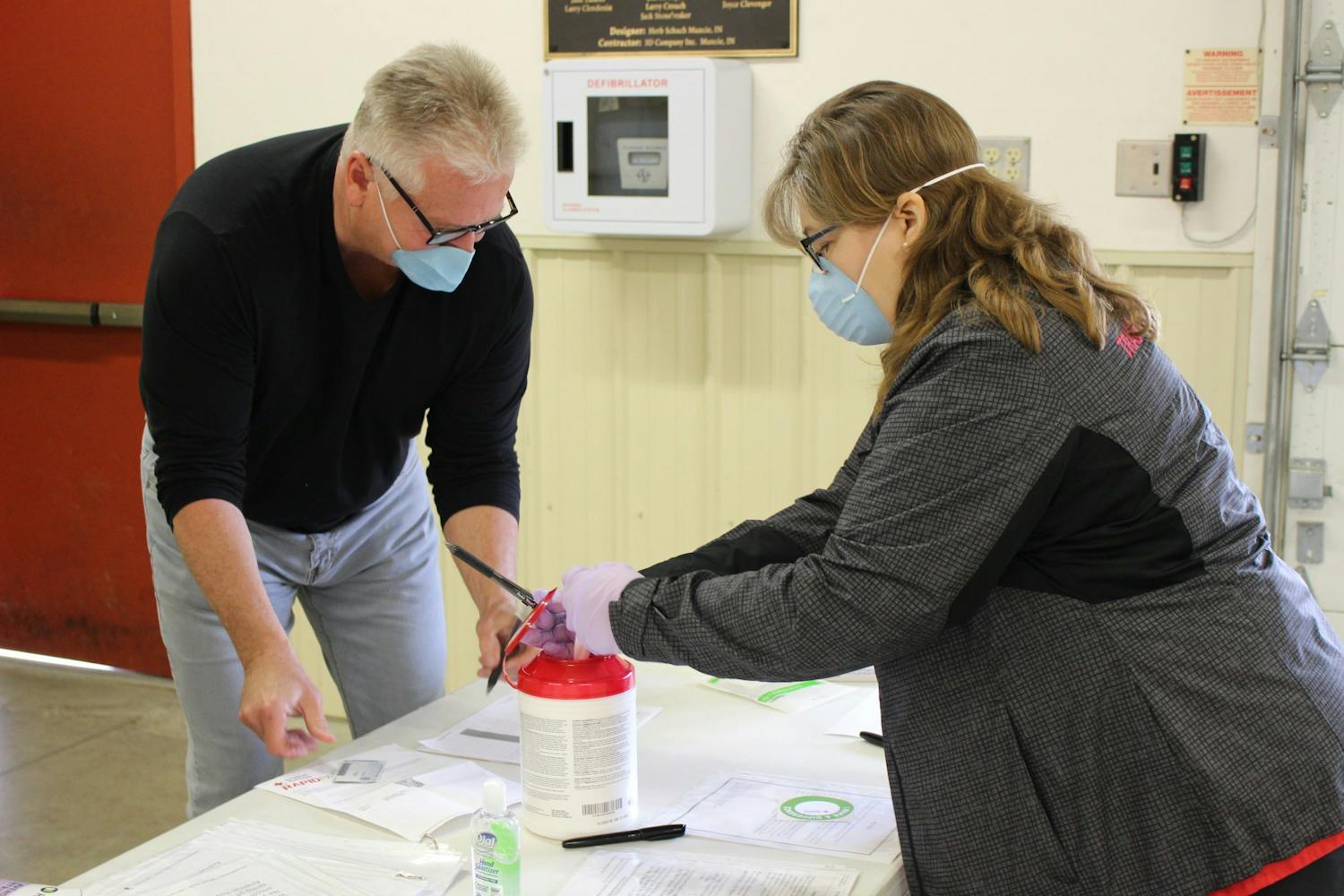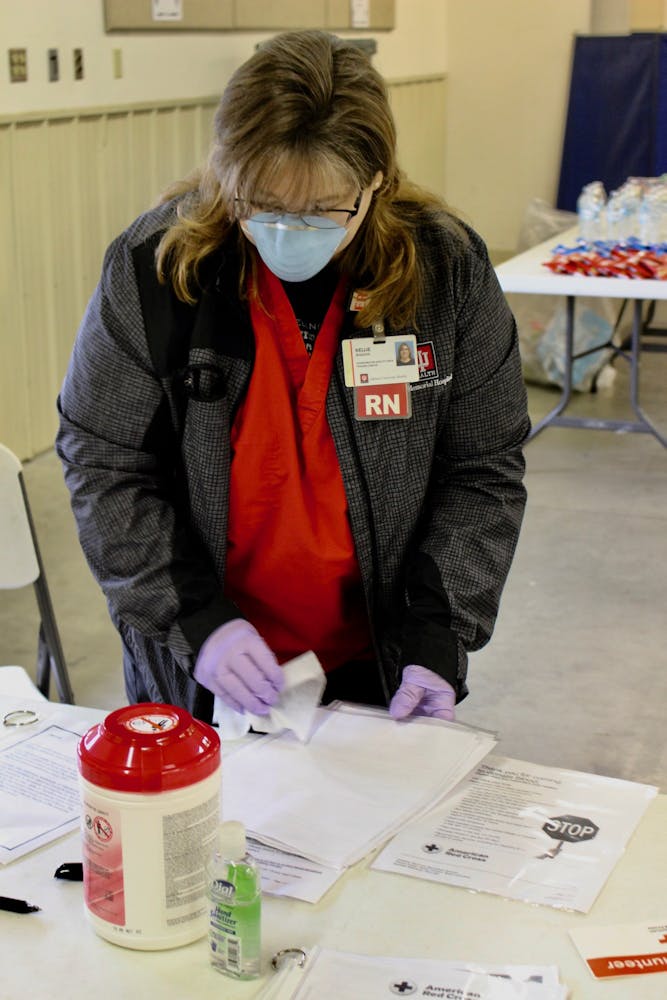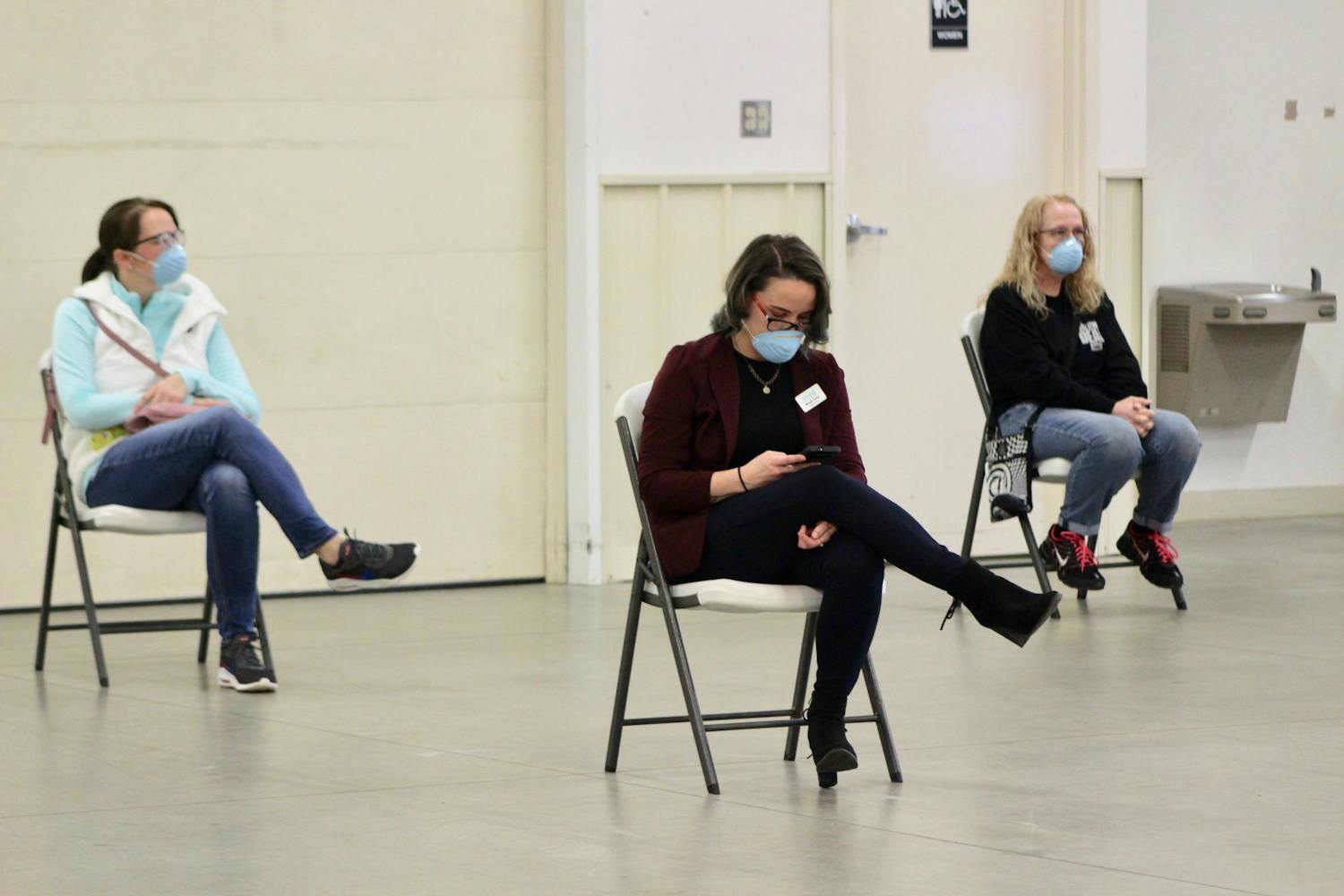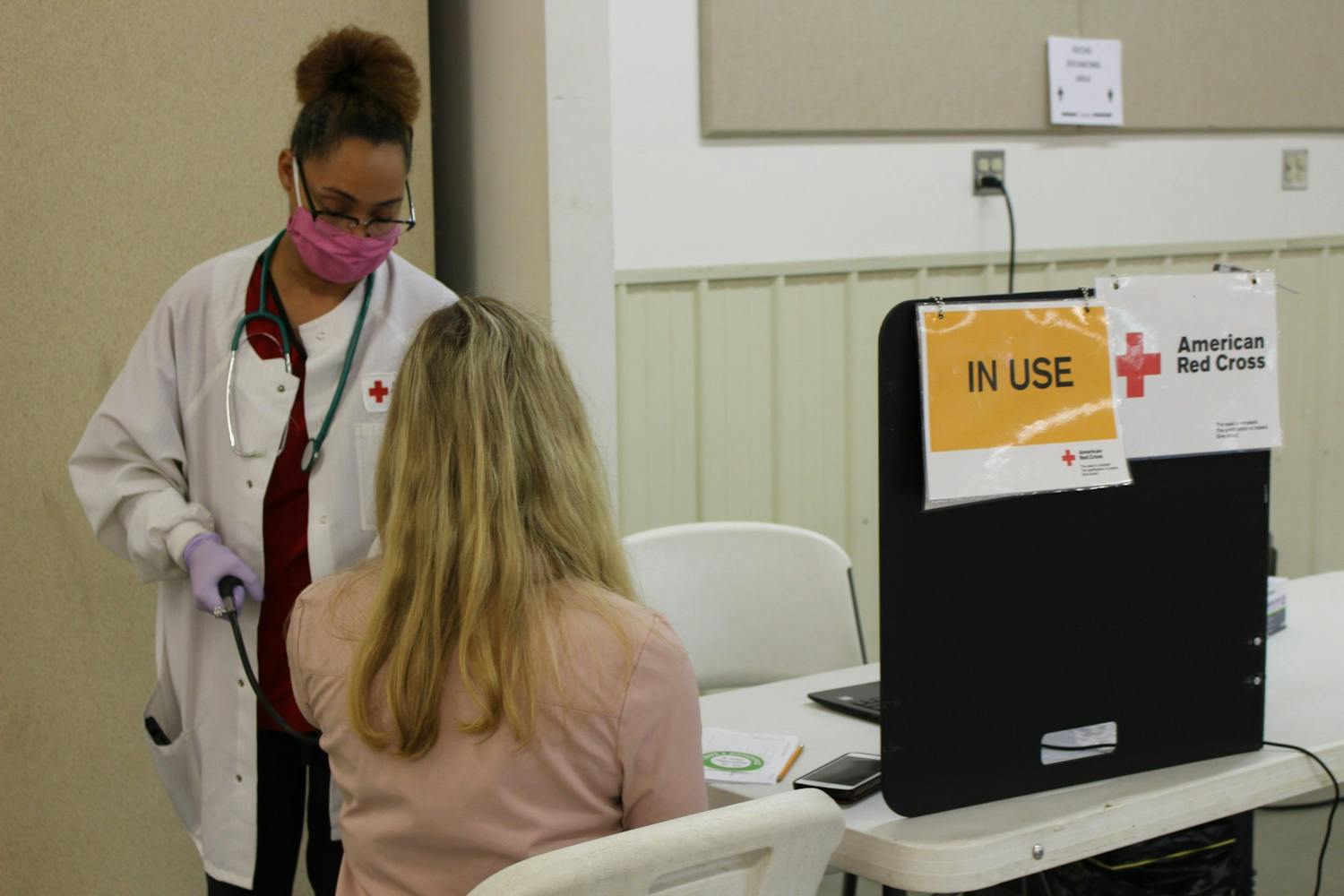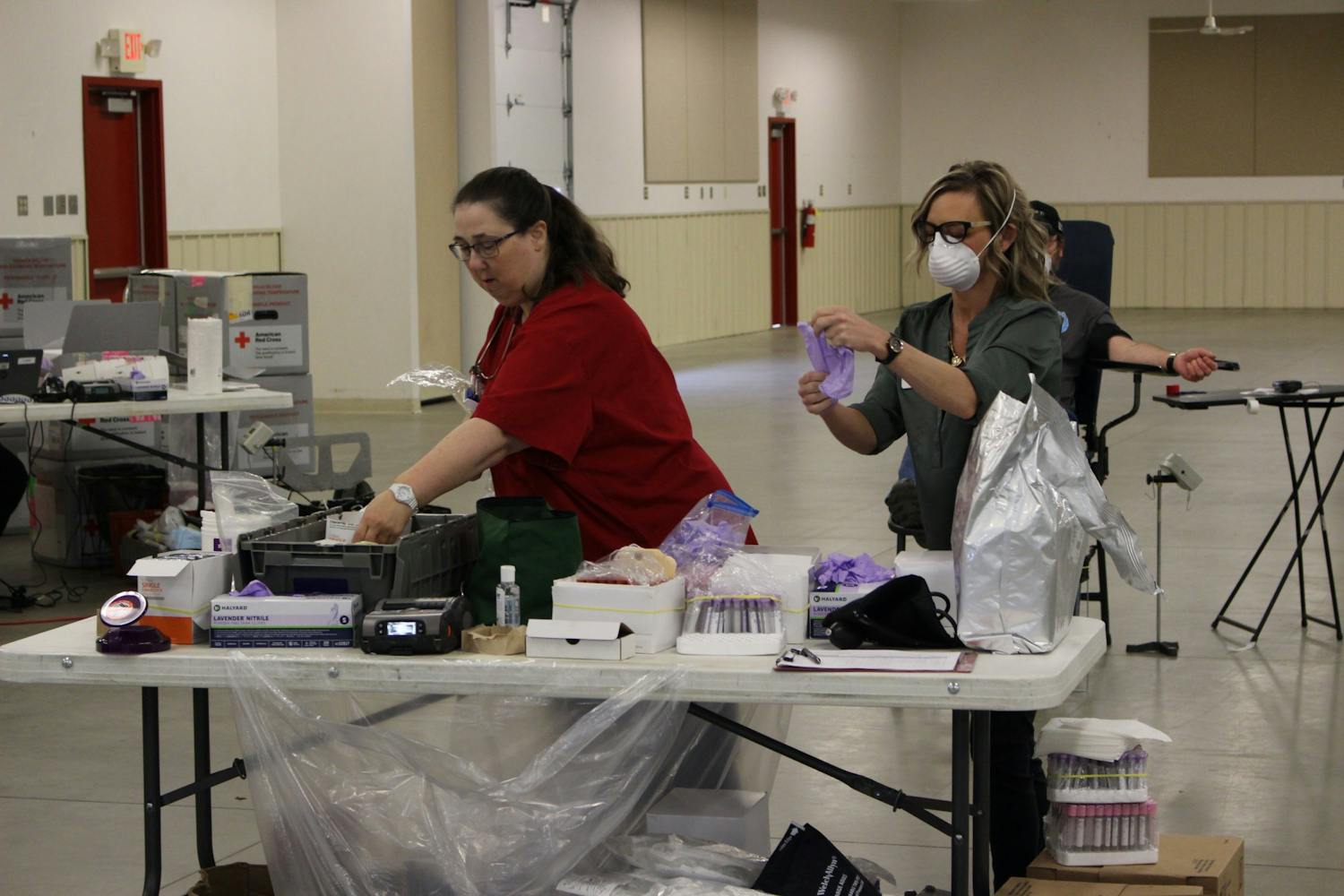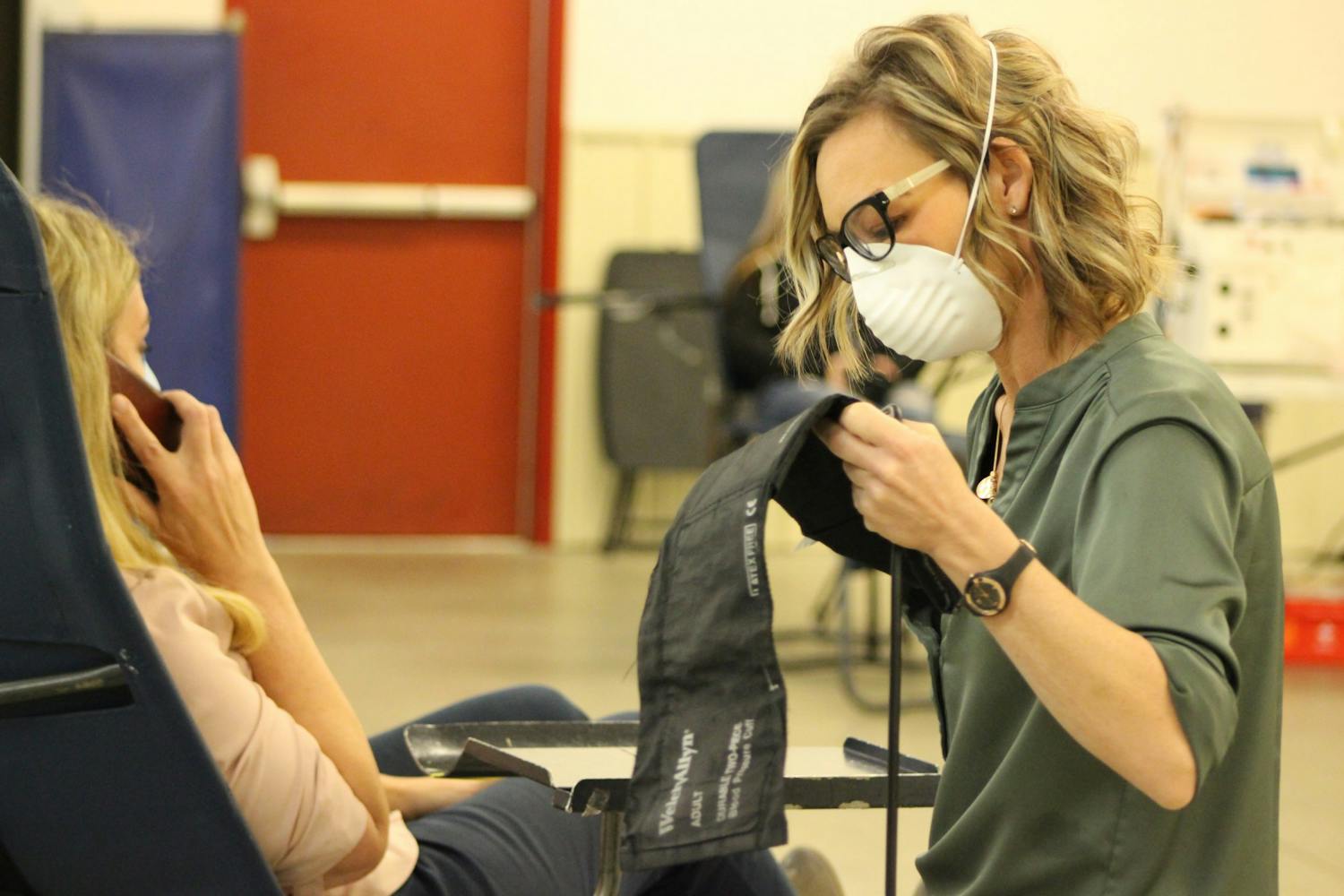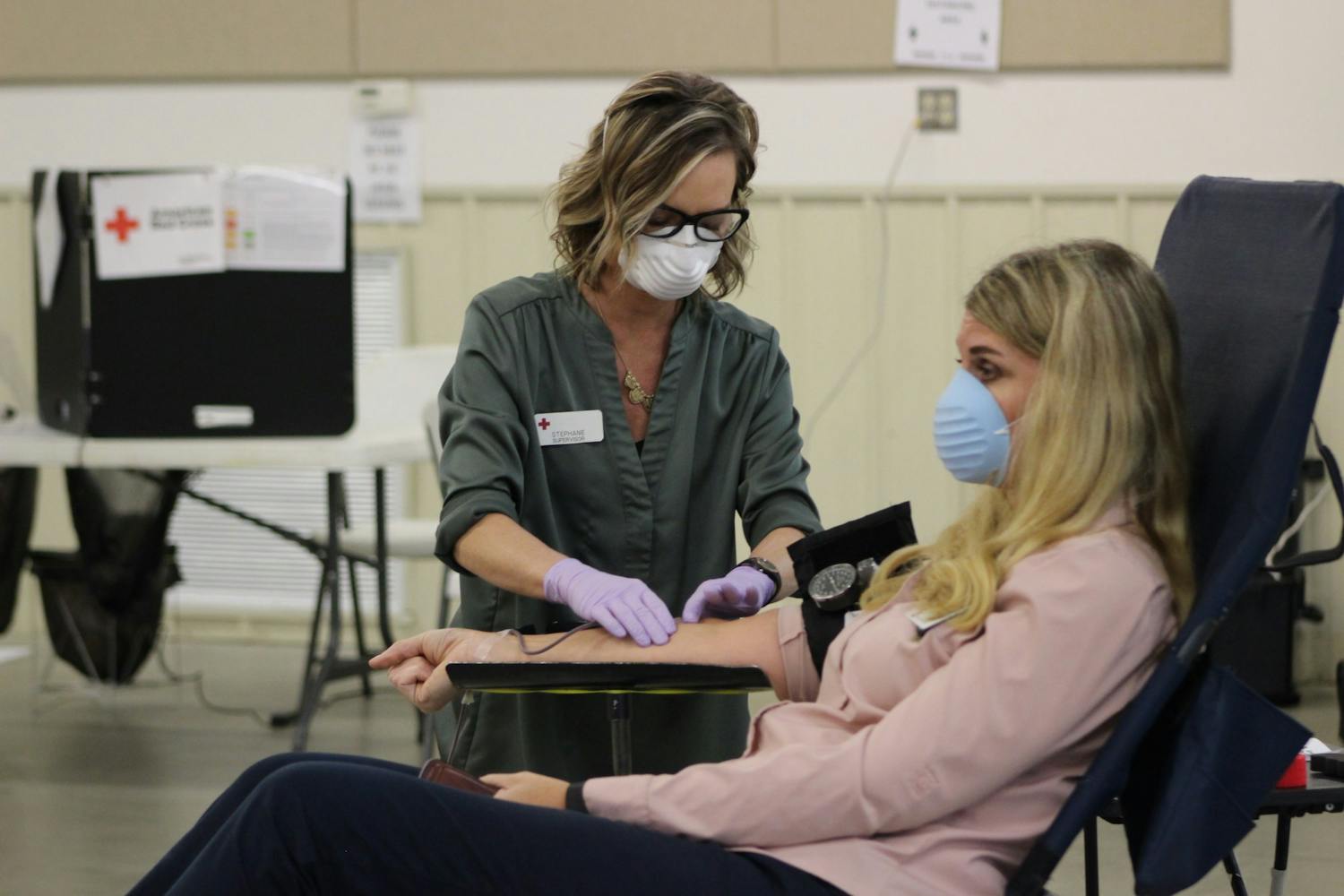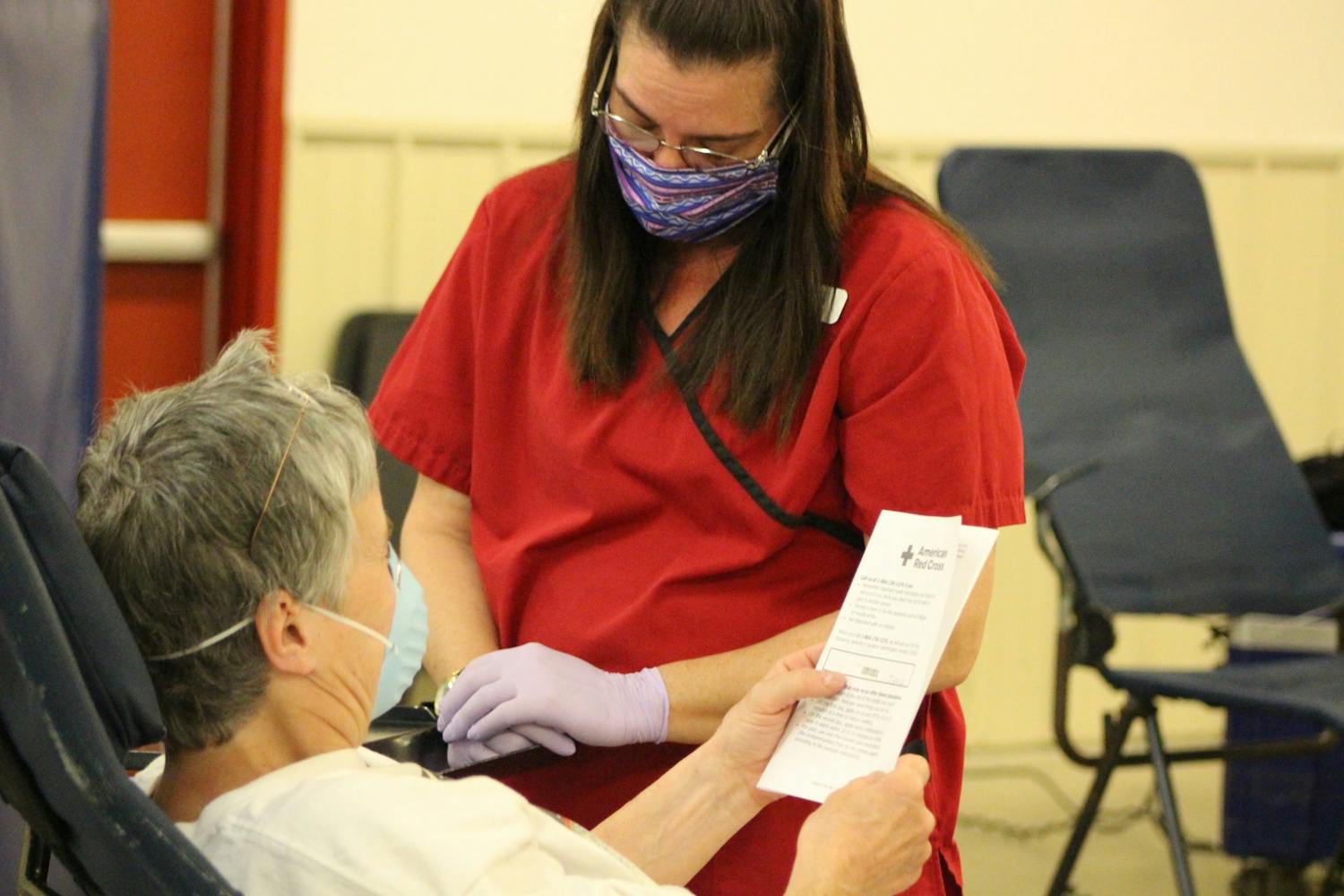Blood banks are required to follow the Food and Drug Administration’s guidelines on blood donor eligibility. Donors answer questions about their health history and undergo a mini physical, including checking temperature, blood pressure and iron levels.
There have been no reported cases worldwide of any respiratory virus being transmitted through a blood transfusion. However, out of an abundance of caution, individuals should postpone their donation for 28 days following:
- Travel to China, Hong Kong, Macau, Iran, Italy and South Korea
- Diagnosis of COVID-19
- Contact with a person who has or is suspected to have the virus
Employee safety protocols to prevent the spread of any type of infection at blood drives and donation centers include:
- Wearing gloves and changing gloves often
- Routinely disinfecting donor-touched areas
- Using sterile collection sets for every donation
- Preparing the arm for donation with an aseptic scrub
Additional precautions implemented to ensure the safety of employees, volunteers and donors include:
- Checking temperature of staff and donors before entering a drive to make sure they are healthy
- Providing hand sanitizer before entering the drive and throughout the donation process
- Following social distancing practices between donors at donor beds and waiting and refreshment areas
- Increasing enhanced disinfecting of surfaces and equipment
- Emphasizing the importance of appointments to help manage the flow of donors at drives.
- Staff wearing basic face masks
Source: Rodney Wilson, external communications manager, American Red Cross
Steady supplies of blood donations to hospitals through blood drives is one of the critical needs disrupted due to stricter guidelines imposed amid the COVID-19 pandemic.
In order to ensure a sufficient supply of blood, Indiana University Health Ball Memorial Hospital in partnership with the American Red Cross organized a blood drive Friday at the Delaware County Fairgrounds.
“We just had a lot of people from the hospital and the community asking how they could help during all of this,” said Donna Barttrum, a registered nurse and injury prevention coordinator at Ball Memorial. “We just listened and decided that we wanted to help out.”
As the COVID-19 pandemic has grown in the U.S., the Red Cross has seen blood drive cancellations grow at an alarming rate, said Rodney Wilson, the organization’s external communications manager.
As of March 27, Wilson said more than 10,000 Red Cross blood drives have been canceled across the country due to coronavirus concerns, resulting in around 300,000 fewer blood donations.
Medical procedures for things like cancer treatments, childbirth and car accidents cannot be postponed and might cause someone to need a blood transfusion, he said, adding a steady flow of donations during this pandemic is vital to ensure patient care can continue.
The organization accounts for 40 percent of the nation’s blood supply, according to its website. Wilson said it has been able to meet immediate patient needs thanks to many who have given blood and scheduled appointments for the future.
Due to uncertainties during the pandemic, he said the Red Cross encourages individuals to keep their scheduled blood donation appointments and make new appointments for the weeks ahead.
“As experts have emphasized, there is no certain end date in this fight against coronavirus and the Red Cross needs the help of blood donors and blood drive hosts to maintain a sufficient blood supply for weeks to come,” Wilson said.
The need to schedule appointments beforehand, he said, is to control the number of people who come to a blood drive at any given time due to newly implemented safety protocols, including social distancing.
“Making an appointment will better allow us to ensure the safety of everyone at the blood drive, and also provide the best customer service experience to the donor by keeping wait times low,” Wilson said.
For those fearful of signing up for a blood drive during the pandemic, Jagdish Khubchandani, professor of health science at Ball State, said donors should be assured that those who organize drives are taking “utmost precautions” for safety and hygiene and are “more aggressive” now in enforcing them.
Khubchandani, who attended a blood drive this week, said he was impressed with the precautions being taken, the detailed medical history assessment, and examinations that were being conducted.
“All workers were periodically using sanitizers, changing gloves, and doing their best to assist donors with information and guidance,” he said. “I actually complemented the phlebotomist on how meticulous she was and how thorough the process was.”
COVID-19, he said, is not a blood borne disease, given his knowledge of past infections from other coronaviruses such as Middle East respiratory syndrome (MERS) and severe acute respiratory syndrome (SARS).
“But, it’s tricky because you are going out and coming in contact with other people,” he said. “In my case, I sat for a test within 1 feet of a phlebotomist and when blood was taken, I was lying within 2 feet of two blood drive personnel. I am sure they were cleared to do the job, so I am not worried now.”
Despite his background in public health and medicine, Khubchandani said he did think negatively, at least once, about venturing out during the pandemic for a blood donation.
Before he left for his donation, his father, a doctor, reminded him that his blood group is B positive to reinforce the importance of donating blood in order to help the healthcare system, especially when it is overwhelmed by COVID-19 cases.
In order to exercise additional personal caution, Khubchandani said people should maintain all hygienic practices suggested by the Centers for Disease Control and Prevention and the World Health Organization. After returning home, he said donors should change their clothes, wash their hands, not touch their face during and after the process until they wash their hands.
He said donating blood is a healthy thing to do and an opportunity to save lives — “a gift that’s most needed right now, with dire shortage across the nation.”
“Drive workers are also at risk from us. What if we end up infecting them? Still, they are trying to help communities,” Khubchandani said. “We must have faith and not be in so much fear when the risk [from] such activities is very low.”
Barttrum said the blood drive at the fairgrounds admitted 77 donors, through scheduled appointments, due to the strict guidelines. She said their slots were completely full within a few hours of having the event advertised on social media — more than the number the hospital had initially asked for.
Depending on the response for this event, Ball Memorial might try scheduling another blood drive in the beginning of May. Meanwhile, other opportunities to donate blood are also available by prior appointment in Muncie through the Versiti Blood Center of Indiana’s blood drives.
“I’ve never really been through something like this here. We’ve never experienced anything like this.” said Barttrum who has been living in Muncie for 20 years. “I wasn’t really sure how everybody was going to support each other, but I think it’s been wonderful.”
Contact Rohith Rao with comments at rprao@bsu.edu or on Twitter @RaoReports.



